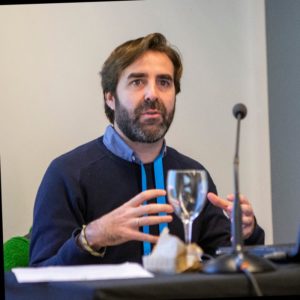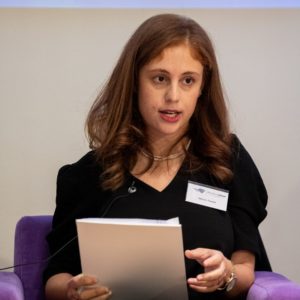At the time climate change is shaking up our society and complex challenges arise with managing scarce natural resources, FEMISE (the Euro-Mediterranean Forum of Institutes of Economic Sciences) and six other partners- the Royal Scientific Society in Jordan, the Tunisian Environmental Protection Agency, the Greek Centre for Renewable Energy Sources and Energy Savings, the Egyptian Centre for Innovation and Technological Development, University of Catania in Italy and the Autonomous University of Barcelona in Spain- have launched the WEF-CAP project.
This project has grasped an opportunity to efficiently capitalize Water-Energy-Food (WEF) Nexus best practices, commercialization tools and methodologies to promote cooperation and tech-transfer, mainstreaming policy impact for innovation-driven progress to effectively support education, research, technological advancement, and innovation in the EU-MPC region.
Meanwhile, sharing knowledge and innovative approaches have become even more urgent in the present economic crisis, when the basic economic resources are no longer confined to the availability of natural resources, or the amount of labor but rather the systematic modeling of knowledge and experts’ know-how for the purpose of growth and innovation.
To better streamline this knowledge, the project created a digital repository called WEF-CAP Observatory platform which is considered a regional leading informative site, that enable experts, researchers and policy-makers to share, diffuse and transfer knowledge of the WEF Nexus capitalization and generate technical insights on best methodologies, practices of water, energy and food integration. This open source hub includes a network of stakeholders to promote the use of existing data, case studies and good practices to support decision-making and the formulation of evidence-based policies
Within this context, FEMISE conducted a series of interviews with key players from the region, including practitioners, policy makers, private sector and academia to promote the WEF integrated approach under the framework of the WEF-CAP project with the financial support of the European Union through the ENI CBC MED Programme, with the aim to share knowledge, experiences and best practices across the region, highlight challenges and recommendations.
Capitalising on WEF initiatives that work in Tunisia,Lebanon & Spain!
In this first episode, we present two innovative initiatives that have proven their worth and success, Maroua Oueslati, Information and Project Manager at UT SEMIDE, France working in the water sector and Rafael Casielles, R&D Senior Project Manager at BIOAZUL, Spain working on technical and commercial innovative solutions in, energy water engineering.


SUPROMED, for sustainable production in the Mediterranean Agro-Ecosystem
CoveringLebanon,TunisiaandSpain,SUPROMED project improves the economic and the environmental sustainability of Mediterranean farming systems. The project aims to increase both farms production and farmer’s income while ensuring the efficient use of water, energy and fertilizers in an environmental friendly way throughout an integrated and validated set of scientific models and tools.
“SUPROMED project results look promising, confides Maroua Oueslati, the project site in Sidi Bouzid, Tunisia, is using 23% less energy than plots under traditional management, to produce one unit of marketable product (kWh/kg). Also, in the Lebanon site, natural net irrigation requirements were 20% lower in plots monitored by SUPROMED than in plots monitored by farmers”.
RICHWATER, a combined technology for treating and reusing wastewater in agriculture
In Spain, RICHWATER project aims to provide an effective solution to the problems of water scarcity; a growing concern, among countries of the European Union where agriculture consumes around 75% of water resources.
Watch the video where we go beyond sharing relevant experiences. We promote effective WEF Nexus implementation practices that could be adequate for replications in the Mediterranean region to ensure access to water, energy and food for all.

